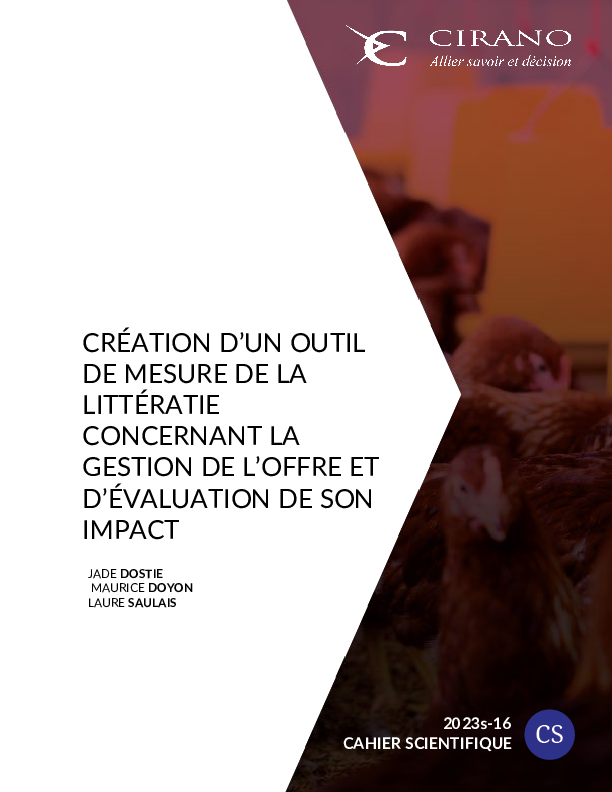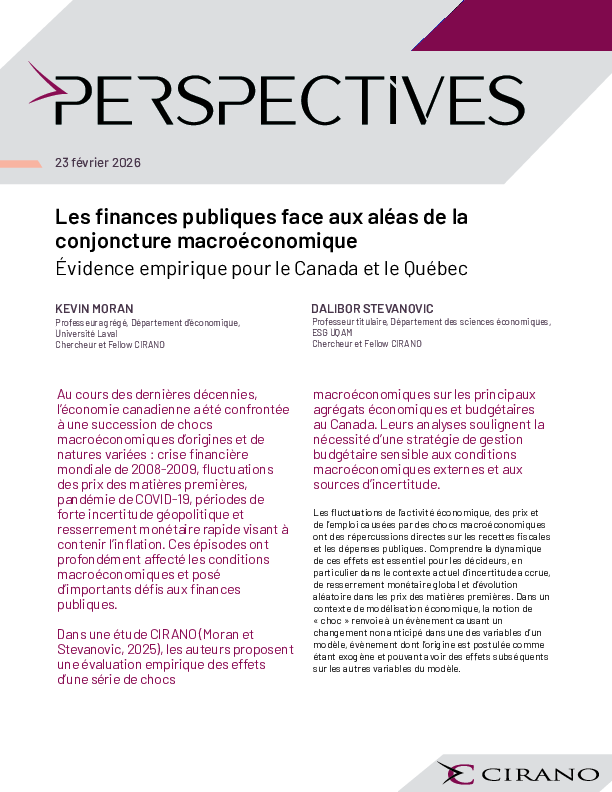Création d’un outil de mesure de la littératie concernant la gestion de l’offre et d’évaluation de son impact
The present study is part of a process to develop a pan-Canadian tool for measuring the level of literacy (knowledge) of Canadians on supply management. Supply management is a unique agricultural policy in Canada and the effects of this policy are not unanimously accepted by experts.
Since differences of opinion concerning supply management have been carried over into the media aimed at the general public (editorials, opinion articles, etc.), it seems interesting to measure the Canadian population's level of knowledge of these key elements. In addition, Canadian consumers are showing a growing interest in certain social attributes of their food consumption on which supply management can have an indirect impact—in particular, equity, animal welfare and environmental impact. However, very few studies explore consumers' knowledge and understanding of these aspects.
We found limited literature on the development of literacy indicators in agriculture, and even less in agricultural economics. In this study, we first develop a tool for measuring supply management literacy, followed by a tool for assessing Canadians' perception of supply management. The steps involved in creating both tools are described, and analysis of the results of the pre-test of the literacy measurement tool is presented and discussed.
The pre-test was completed by 119 respondents, 62 of them from the farming community. Respondents had an average literacy score of 56.4%. As the sample is over-represented in terms of knowledge of the farming community, this relatively low literacy level is thought to be higher than that of the general population.




